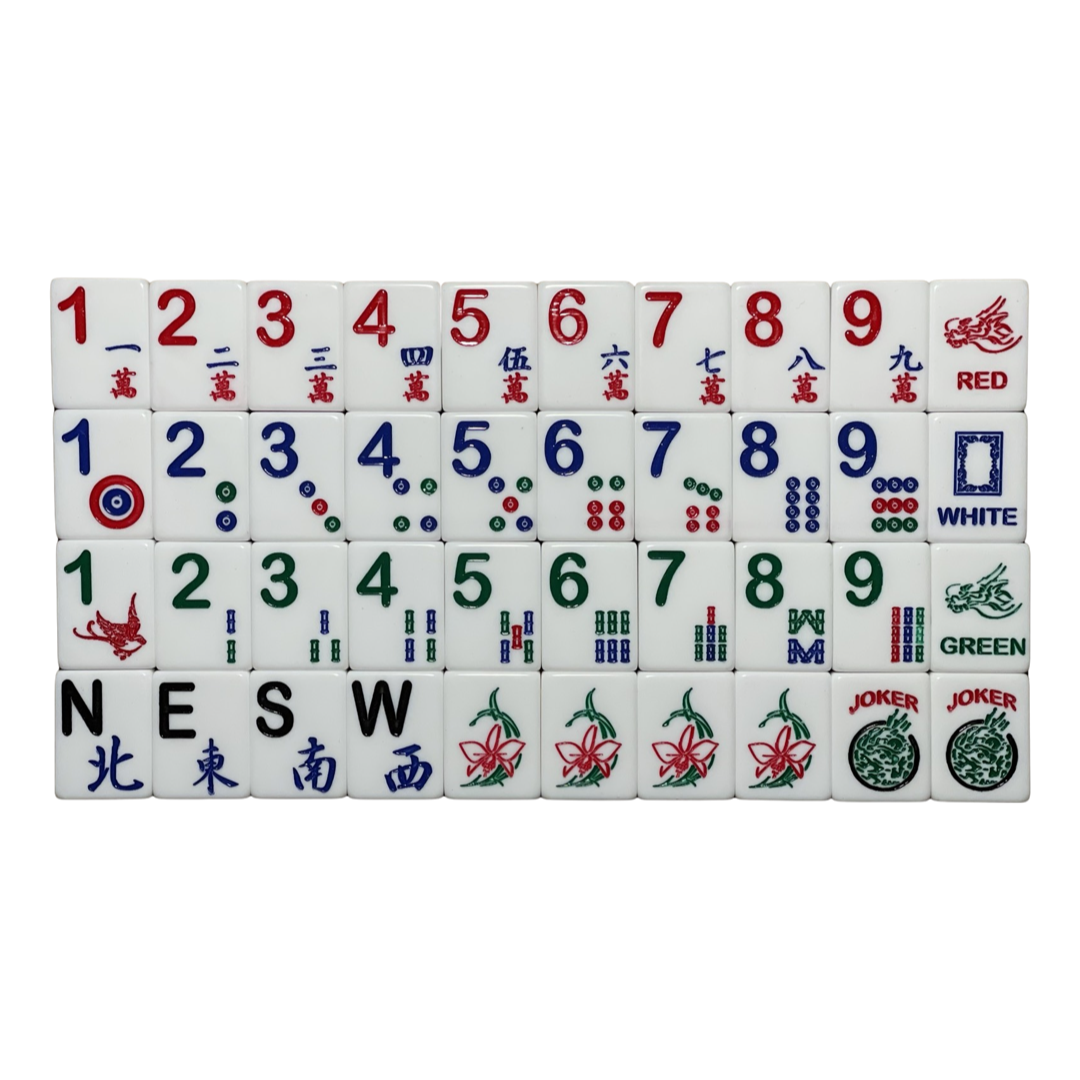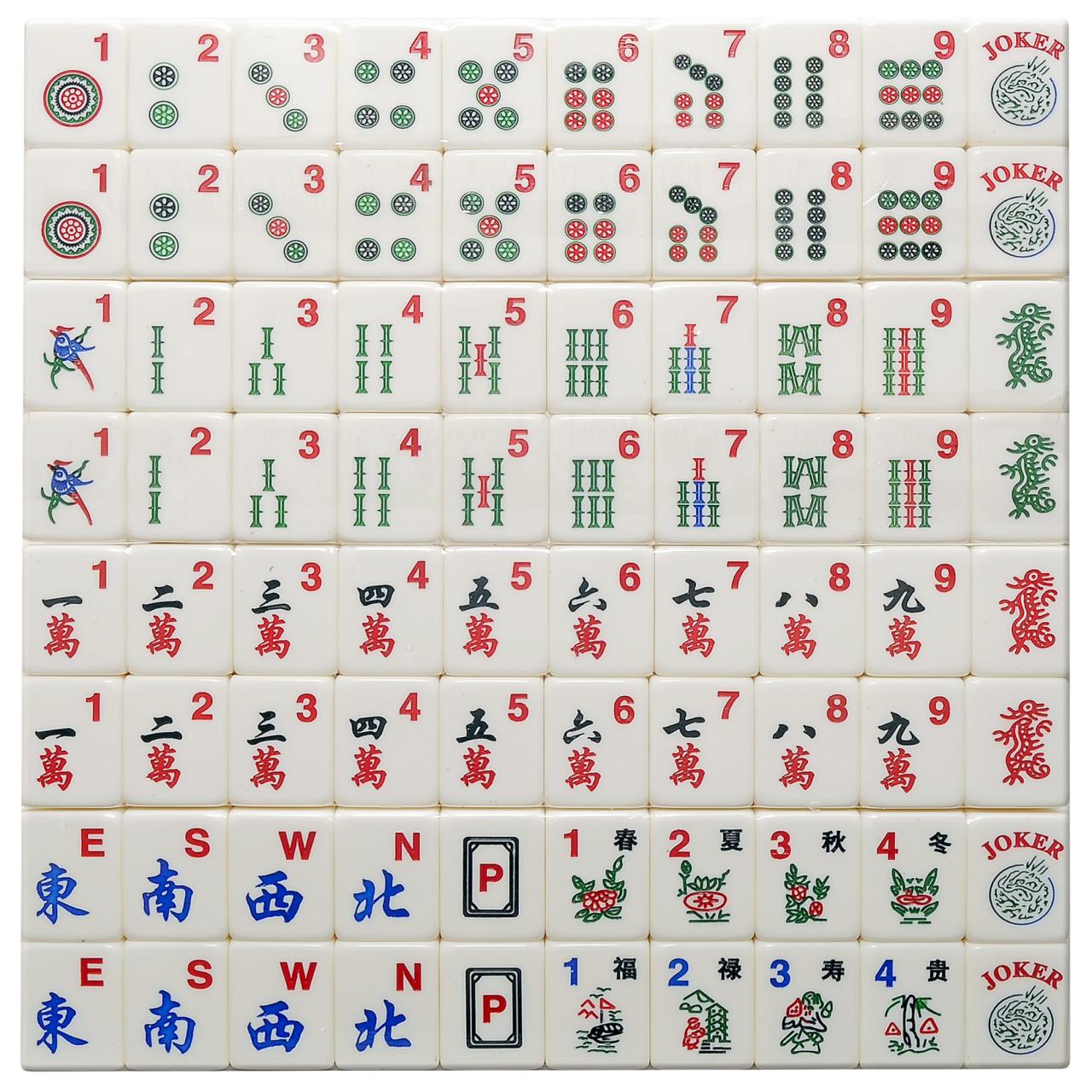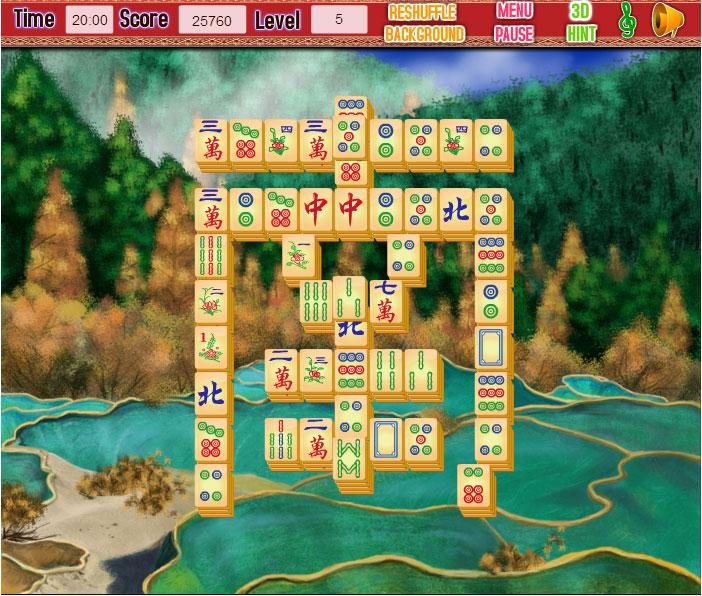Mahjong Quest takes center stage as a captivating journey into the world of this classic puzzle game, blending rich history with modern gameplay. Originating from ancient Chinese roots, Mahjong has evolved over the years into various forms, with Mahjong Quest standing out for its unique mechanics and engaging storylines. Players embark on an adventure filled with challenges and strategic gameplay that keeps them coming back for more.
This exploration delves into the intricacies of Mahjong Quest, from its set-up and gameplay rules to the visual and audio elements that enhance the experience. It invites both new players and seasoned veterans to discover the strategies that can lead to victory while also enjoying the community and culture surrounding this beloved game.
Overview of Mahjong Quest

Mahjong Quest is a captivating tile-matching game that blends traditional Mahjong gameplay with unique storytelling elements and engaging puzzles. Originally developed by a passionate team to revitalize the classic game of Mahjong, it has since evolved into a beloved franchise among gaming enthusiasts worldwide. The game’s rich history dates back to its initial release, which sought to introduce newcomers to the strategic depth of Mahjong while maintaining the charm of its traditional roots.
The main objectives in Mahjong Quest revolve around matching pairs of tiles to clear the board and achieve various goals set across different levels. Players must strategically select tiles, taking into consideration the layout and available moves, while also adhering to specific rules that govern tile accessibility. This combination of tactical decision-making and puzzle-solving makes each game a unique challenge. The gameplay mechanics encourage players to think critically and plan ahead, as they navigate through intricately designed levels filled with obstacles and special tiles that add depth to the gameplay experience.
Different Editions and Versions of Mahjong Quest
Mahjong Quest has seen a variety of editions released over the years, each adding new features and challenges while staying true to the core mechanics that define the series. The evolution of the game has introduced players to various themes, storylines, and technological advancements. The following are notable versions that have influenced the franchise:
- Mahjong Quest (2002): The original version that set the groundwork for the series, featuring classical gameplay with a simple interface and story-driven quests.
- Mahjong Quest: Expeditions (2004): Building on the initial success, this edition introduced new levels, power-ups, and an expanded storyline that took players on adventures through ancient civilizations.
- Mahjong Quest: Journey (2007): This version expanded the gameplay with complex puzzles and introduced time-based challenges, adding an exciting layer of urgency to tile matching.
- Mahjong Quest: The Quest for the Golden Tiles (2010): A substantial update that included enhanced graphics, new tile designs, and various mode options to cater to different player preferences.
Each of these editions has contributed to the ongoing legacy of Mahjong Quest, ensuring that players continue to engage with its compelling puzzles and narratives. The series not only pays homage to its roots in traditional Mahjong but also innovates with new gameplay mechanics and visual styles, keeping the experience fresh and exciting for both new and returning players.
“The essence of Mahjong Quest lies in its ability to blend traditional tile-matching with rich storytelling and strategic challenges, making it a unique gem in the world of puzzle games.”
Gameplay Mechanics
Mahjong Quest offers a rich and engaging gaming experience that combines strategy, luck, and a bit of skill. Understanding the gameplay mechanics is crucial for players looking to improve their chances of winning. This section delves into the essential rules, strategies, and setup procedures for the game, providing players with the knowledge needed to navigate their way through the complexities of Mahjong Quest.
The fundamentals of Mahjong Quest revolve around matching tiles, strategizing moves, and accumulating points. The game uses a traditional set of Mahjong tiles, each with unique symbols and values. Players take turns drawing and discarding tiles to form sets and runs, a key part of the overall strategy. Mastering these elements is essential for successful gameplay.
Rules and Strategies
To excel in Mahjong Quest, players must familiarize themselves with the specific rules and strategic approaches that govern the game. Here are the core rules and strategies to consider:
- Tile Matching: Players match pairs of identical tiles to remove them from the board. Only tiles that are not blocked by other tiles can be selected.
- Wind and Dragon Tiles: Special tiles, like Wind and Dragon tiles, hold higher value and can score bonus points when matched.
- Scoring Combinations: Forming specific combinations, such as Pungs (three of a kind) or Chows (three consecutive tiles), can enhance scoring potential.
- Strategic Discarding: Players should carefully consider which tiles to discard, as they could assist opponents in forming their sets.
Scoring System
The scoring system in Mahjong Quest is designed to reward players for strategic gameplay and tile combinations. Points are accumulated based on the types of sets formed during the game.
– Each pair of regular tiles removed from the board scores a certain number of points.
– Special tiles, when matched, provide bonus points that can significantly alter the game’s outcome.
– Players can also earn points for time bonuses, based on how quickly they complete their matches.
Understanding the scoring dynamics is essential, as players can turn the tide of the game through strategic plays and efficient tile management.
Game Setup Guide
Setting up a game of Mahjong Quest is straightforward, allowing players to dive into the action quickly. Follow these steps for a seamless setup experience:
1. Gather Materials: Ensure you have a complete Mahjong tile set, which typically consists of 136 tiles, including numbered tiles, Winds, and Dragons.
2. Shuffle the Tiles: Mix the tiles face down to prepare for drawing. This step ensures randomness for the game.
3. Create the Wall: Form two rows of tiles (the ‘wall’) by stacking tiles vertically, with a standard height of 18 tiles.
4. Determine the Dealer: Select the dealer, who will take the first turn. This can be done by rolling dice or drawing tiles.
5. Draw Tiles: The dealer draws 13 tiles, while all other players draw 12 tiles each, creating their starting hands.
6. Gameplay Begins: The game starts with the dealer’s turn, continuing in a clockwise direction.
By following these steps, players can set the stage for an exciting and competitive game of Mahjong Quest.
Visual and Audio Elements
The visual and audio components of Mahjong Quest significantly elevate the gaming experience, immersing players in a beautifully crafted world. The game’s graphics and sound design work in harmony to create an engaging atmosphere that complements the strategic gameplay. From character designs to the intricate board layouts, every detail is thoughtfully constructed to enhance player enjoyment.
The visual style of Mahjong Quest is characterized by its vibrant colors, intricate patterns, and delightful character designs. The game incorporates a blend of traditional Chinese aesthetics with modern graphical techniques, resulting in visually stunning boards and charismatic characters. Each character is designed with unique attributes and styles that reflect their roles within the game, contributing to the overall narrative and charm. The board layouts are equally impressive, featuring various thematic backgrounds that change as players progress through different levels. This dynamic visual presentation keeps players captivated while maintaining a cohesive aesthetic throughout the game.
Soundtrack and Sound Effects
The soundtrack and sound effects of Mahjong Quest are meticulously crafted to enhance the overall gameplay experience. The audio elements complement the visual style, creating a cohesive atmosphere that draws players into the game’s enchanting world.
The soundtrack features a mix of traditional Chinese music and modern instrumental compositions, providing a rich auditory backdrop that elevates the gaming experience. Each level has its own unique musical theme, which not only reflects the visual setting but also enhances the emotional tone of the gameplay. The gentle melodies create a calming ambiance that encourages players to focus, while more upbeat tracks accompany moments of excitement and triumph.
In addition to the music, the game incorporates sound effects that add depth and immersion to the experience. From the satisfying clicks of tiles being matched to the celebratory sounds that play upon completing a level, these audio cues reinforce player actions and successes. The combination of music and sound effects serves to create a fully engaging environment that resonates with players long after they have put down their devices.
Iconic Scenes and Artistic Elements
Several iconic scenes within Mahjong Quest showcase the game’s artistic elements, leaving a lasting impression on players. Each level is designed with creativity, incorporating thematic visuals that reflect the game’s narrative and historical context.
For instance, one notable level set in a serene bamboo forest features lush greenery and tranquil water elements, creating a peaceful environment that contrasts with the excitement of gameplay. The board itself is adorned with intricate tile designs that symbolize various aspects of Chinese culture, enhancing the thematic immersion.
Another memorable scene occurs during a climactic challenge set against the backdrop of a grand pagoda. The visual details of the pagoda, with its ornate architecture and vibrant colors, transport players to a different time and place. The level’s design, combined with a powerful soundtrack, evokes a sense of adventure and discovery.
These artistic elements not only make Mahjong Quest visually appealing but also enrich the storytelling aspect, allowing players to connect with the game’s themes on a deeper level. The combination of stunning visuals and evocative audio creates an unforgettable gaming experience that resonates with both casual players and seasoned gamers alike.
Tips and Strategies: Mahjong Quest

Mastering Mahjong Quest requires a blend of strategy, observation, and skill. While the game is often perceived as luck-based, players who invest time in learning and applying strategies can significantly enhance their chances of winning. This segment will provide expert tips, common mistakes to avoid, and advanced techniques for seasoned players, enabling a deeper understanding of the game.
Expert Strategies for Winning
Successful players often employ specific strategies that can make a substantial difference in their gameplay. Here are some effective tactics to consider:
- Prioritize Pair Matching: Focus on matching pairs before attempting to clear single tiles. This creates opportunities for future moves.
- Observe the Board: Regularly assess the entire board rather than fixating on a single section. This helps identify potential matches and future moves.
- Manage the Stack: Be mindful of the tiles stacked above those you wish to match. Remove tiles that block access to others that may be more beneficial.
- Utilize Special Tiles: Use bonus tiles wisely, as they can assist in clearing difficult sections of the board or score extra points.
Common Mistakes to Avoid
Even experienced players can fall into traps that hinder their performance. Awareness of these common pitfalls is essential for improvement:
- Neglecting to plan ahead, leading to blocked moves.
- Focusing too much on nearby matches while ignoring more beneficial options elsewhere on the board.
- Rushing to make matches without considering the overall board state.
- Failing to utilize the undo feature, which can provide critical insights into better moves.
Advanced Techniques for Experienced Players
For those who have a solid grasp of the basics, enhancing skills can involve more nuanced techniques. Implementing these advanced strategies can lead to significant improvements in gameplay:
- Tile Memory: Develop a mental catalog of tiles that have been played. This aids in predicting what tiles remain and strategizing future moves.
- Multi-Match Strategies: Look for opportunities to create multiple matches in a single turn, maximizing points and clearing the board more efficiently.
- Adaptive Play Style: Adjust your strategy based on the specific layout of tiles, continually evolving your approach based on the current game state.
- Time Management: Keep an eye on the clock, especially in timed modes. Learn to balance speed with strategic decision-making to avoid rushed mistakes.
Understanding the flow of the game and anticipating moves is key to mastering Mahjong Quest.
Community and Culture
The community surrounding Mahjong Quest is vibrant and diverse, comprising players from various backgrounds who share a passion for the game. This collective enthusiasm has resulted in the establishment of numerous forums, fan sites, and social media groups dedicated to discussing strategies, sharing experiences, and celebrating the unique aspects of Mahjong Quest. These platforms serve as hubs for both novice and veteran players, fostering an inclusive environment where knowledge is exchanged and friendships are formed.
The influence of Mahjong Quest extends beyond its dedicated player base, as it has made significant inroads into popular culture and the gaming landscape. The game’s distinctive blend of traditional Mahjong elements with innovative mechanics has inspired a variety of adaptations and references in other media. From mobile applications to animated series, Mahjong Quest has become a recognizable title that showcases the timeless appeal of tile-matching puzzles. Its success has encouraged developers to explore similar gameplay styles, which can be seen in various contemporary games that draw on its mechanics.
Community Platforms and Fan Sites
Numerous online platforms and fan websites have sprung up around Mahjong Quest, providing players with resources, discussion boards, and community events. These platforms enable players to interact, share tips, and engage with the game on a deeper level. Here are some notable community resources:
- Mahjong Quest Forum: A dedicated space for players to discuss strategies, share gameplay experiences, and ask for advice on challenging levels.
- Reddit Communities: Subreddits such as r/Mahjong offer discussions, memes, and player achievements, fostering a sense of camaraderie among fans.
- Facebook Groups: Various groups exist where players share gameplay tips, post high scores, and organize events.
Influence on Popular Culture
The success of Mahjong Quest has inspired various cultural references and adaptations that highlight its impact on gaming and entertainment. The game’s unique mechanics and engaging storytelling have led to appearances in several media formats. Some examples of its cultural influence include:
- Mobile Game Adaptations: Several mobile games have borrowed elements from Mahjong Quest, emphasizing its tile-matching mechanics and puzzle-solving aspects.
- Merchandising: The game has inspired merchandise such as themed apparel and collectibles, reflecting its popularity among fans.
- Television References: Shows have featured Mahjong Quest or its gameplay mechanics, demonstrating its recognition within popular media.
Notable Tournaments and Events
Mahjong Quest is often celebrated through various tournaments and events that bring players together to showcase their skills and compete for prizes. These events not only highlight the competitive aspect of the game but also foster a sense of community among players. Some notable tournaments include:
- Annual Mahjong Quest Championships: A prestigious event where top players compete for titles and rewards, often streamed for a global audience.
- Online Tournaments: Regularly organized competitions on platforms that allow players to compete from around the world, promoting accessibility and participation.
- Fan-Conventions: Events where enthusiasts gather to celebrate Mahjong Quest, featuring workshops, guest speakers, and live competitions.
Comparisons with Other Games
The landscape of puzzle games is vast, and Mahjong Quest occupies a unique niche within it. This section will explore how Mahjong Quest aligns with traditional Mahjong games while highlighting its distinct features that set it apart from both classic Mahjong and other puzzle games on the market. By understanding these comparisons, players can appreciate what makes Mahjong Quest a standout title.
Similarities and Differences with Traditional Mahjong
Mahjong Quest shares foundational elements with traditional Mahjong, such as tile matching and the objective of clearing the board. Both formats involve strategically selecting and pairing tiles, which requires skill and forethought. However, significant differences exist in their gameplay structures and rules.
- Tile Sets: Traditional Mahjong utilizes a comprehensive set of 144 tiles, whereas Mahjong Quest simplifies this to a more manageable selection, streamlining the gaming experience.
- Game Mechanics: While traditional Mahjong includes complex scoring systems and player-versus-player dynamics, Mahjong Quest focuses on single-player journeys with levels designed around unique puzzles and challenges.
- Aesthetic Style: Traditional Mahjong is steeped in cultural significance, often featuring intricate designs and motifs. Mahjong Quest employs vibrant graphics and animations, appealing to modern gaming aesthetics.
Standout Features Compared to Other Puzzle Games
Mahjong Quest differentiates itself not just from traditional Mahjong but also from the broader puzzle game genre by integrating unique gameplay elements and storytelling features. This enhances the overall gaming experience beyond mere tile matching.
- Adventure Mode: Unlike many other puzzle games, Mahjong Quest offers an adventure mode where players embark on a quest across different worlds, each filled with themed challenges and stories.
- Power-Ups and Boosts: The game includes special tiles and power-ups that enhance gameplay, allowing for strategic moves that can alter tile arrangements or offer hints when needed.
- Progressive Difficulty: Mahjong Quest features a well-thought-out difficulty curve that gradually introduces new challenges, making it accessible for beginners while still providing depth for seasoned players.
Unique Features that Differentiate Mahjong Quest
The unique aspects of Mahjong Quest contribute significantly to its popularity and player engagement. These features not only enhance gameplay but also enrich the narrative element of the game.
- Story-Driven Quests: Players are not just matching tiles; they are following a storyline, allowing for emotional investment and motivation to progress through levels.
- Customizable Gameplay: Players can select different modes and difficulty settings, tailoring their experience based on their preferences and skill levels.
- Visual and Audio Integration: The game combines stunning visuals with an engaging soundtrack, creating an immersive environment that enhances the overall experience.
Future of Mahjong Quest

As Mahjong Quest continues to capture the hearts of players around the world, speculations about its future abound. The game’s developers are likely to seek new ways to enhance player engagement and expand the game’s universe. Considering the current trajectory of the gaming industry, several potential updates and expansions can be anticipated that will not only enrich the player experience but also solidify Mahjong Quest’s position in the competitive landscape of puzzle games.
The gaming industry has seen a significant shift toward community-driven content and player engagement over recent years. In the era of multiplayer experiences and live updates, Mahjong Quest could benefit greatly from these trends. The introduction of seasonal events, leaderboards, or collaborative challenges could enhance player participation and create a vibrant community atmosphere.
Potential Updates and Expansions
Future updates for Mahjong Quest may focus on expanding its content and enhancing its gameplay mechanics. Here are some potential directions for updates and expansions:
- New Levels and Scenarios: Expanding the existing game with new levels that introduce unique challenges and storylines can keep the gameplay fresh and engaging.
- Multiplayer Modes: Implementing online multiplayer modes could provide a competitive edge, allowing players to challenge each other in real-time.
- Customizable Gameplay: Features that allow players to customize their tiles or game environments could enhance personalization, making each game session unique.
- Seasonal Events: Introducing themed events during holidays or special occasions could provide exclusive rewards and encourage regular logins.
Influence of Gaming Industry Trends
The development of Mahjong Quest will likely be influenced by several notable trends within the gaming industry. The increasing popularity of mobile gaming and cross-platform play means that adaptations to accommodate these platforms could be critical.
Players are gravitating towards games that offer social interaction and community engagement. This shift presents an opportunity for Mahjong Quest to incorporate features such as:
- Social Sharing: Allowing players to share scores or achievements on social media can facilitate community growth and encourage friendly competition.
- Player-Generated Content: Options for players to create and share their own levels or challenges provide a sense of ownership and creativity.
- In-Game Communities: Creating forums or chat features can help players build connections, share strategies, and foster a supportive environment.
Opportunities for Enhanced Player Engagement
To keep players engaged and invested in Mahjong Quest, new features that appeal to both casual and dedicated gamers should be considered. Some opportunities include:
- Achievements and Rewards System: Implementing a more robust achievements system with meaningful rewards may motivate players to explore different aspects of the game.
- Augmented Reality Features: Integrating AR technology could create a unique gameplay experience that blends the virtual and real worlds.
- Story-Driven Quests: While Mahjong is inherently a puzzle game, adding narrative elements can enhance emotional investment and offer depth to gameplay.
The future of Mahjong Quest is ripe with possibilities, aligning with trends that prioritize social interaction, customization, and immersive gameplay experiences.
Conclusion
In summary, Mahjong Quest not only serves as a bridge between tradition and innovation in the gaming world but also fosters a passionate community of players. As we look towards the future, the potential for updates and new features promises to keep Mahjong Quest fresh and exciting, ensuring its place in the hearts of gamers for years to come. Whether you’re just starting or looking to refine your skills, the journey through Mahjong Quest offers endless opportunities for fun and strategy.
If you’re looking to enjoy the fun and creativity of Blockman Go on a larger screen, you can easily download blockman go pc. This version allows players to immerse themselves in various mini-games and social activities, all while experiencing enhanced graphics and controls that a PC offers. Don’t miss out on the chance to elevate your gaming experience with this exciting adaptation!
If you’re looking to dive into a world of creativity and adventure, consider exploring blockman go pc. This platform offers an engaging gaming experience where you can build, explore, and interact with friends in a vibrant environment. With its user-friendly interface and diverse game modes, it’s an ideal choice for gamers of all ages wanting to unleash their imagination.

